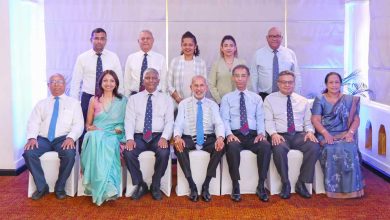NPC
PROPOSALS MADE TO EXPERTS COMMITTEE TO DRAFT A NEW CONSTITUTION
The government’s intention to replace the present constitution with a new constitution offers the possibility of developing a framework of governance that could address the conflicts between the ethnic and religious communities that have marred the post-independence progress of Sri Lanka. Under colonial rule Sri Lanka was at the top of Asia’s economies and described as the “Switzerland of the East.” However, the inability to forge a unified polity, and ensure a feeling of equal belonging and participation in national policymaking, led to decades of conflict. Politicians over the past seven decades have to take responsibility for the current state of decline. Even today, with the three decade long civil war ended more than 11 years, Sri Lanka has yet to find a consensual solution to its ethnic and religious conflicts.
Civil society has an important role to play to reverse this trend with the opportunities given to them to contribute to the constitution drafting process. With the intention of participating in the constitutional development process and to support the government’s efforts to unify the polity on the basis of respect for democracy, human rights and the wellbeing of all, the National Peace Council embarked on a series of consultations with civil society to ascertain what people believe is necessary to include in constitutional reform proposals to build a just, harmonious and pluralistic society with strong institutions that would prevent conflict occurring in future.
During its discussions with civil society groups and individuals across the country, many concerns were expressed about the amendments needed as well as the process of including people’s participation. It was felt that the time period allocated was insufficient for obtaining a wide enough range of opinions and the government should be more involved in the process of creating public awareness about the issues involved in constitutional reform. Several key proposals were made which are summarized below.
- The necessity to ensure that the system of devolved government provided for by provincial councils is enhanced and activated to bring more participatory and representative government as required in a plural and multi-ethnic country. From the United States to Europe to India, devolution has been the answer to many developed and developing nations solving their problems.
- The Constitution to have provisions to safeguard the independence of state institutions from partisan political interventions. State officers should be protected from the risk of politically partisan victimization and harassment. Everyone to be accountable, answerable and treated equally before the law.
- Establishment of a Pluralism and Equal Rights Commission on the lines of other independent commissions, such as the Human Rights Commission and mandated to propagate the idea of pluralism in society and to work on issues that are identified in the fundamental rights chapter of the constitution.
- Establishment of District Reconciliation Committees to address the incidence of inter-religious and inter-ethnic tensions and to promote national integration and reconciliation in all 25 districts.
We believe that the leadership of President Gotabaya Rajapaksa who has the popular mandate and trust of the majority of people offers the best chance to overcome the previous failures of constitution making processes and reach a consensual solution for the benefit of the country at large. We believe that the post-war need for national reconciliation requires a constitution that is pluralist in its vision and obtains the concurrence of the ethnic and religious minorities and the necessary support from the ethnic and religious majority. It is only a united peaceful country that could develop in a post-war manner similar to Japan, South Korea or Germany.





